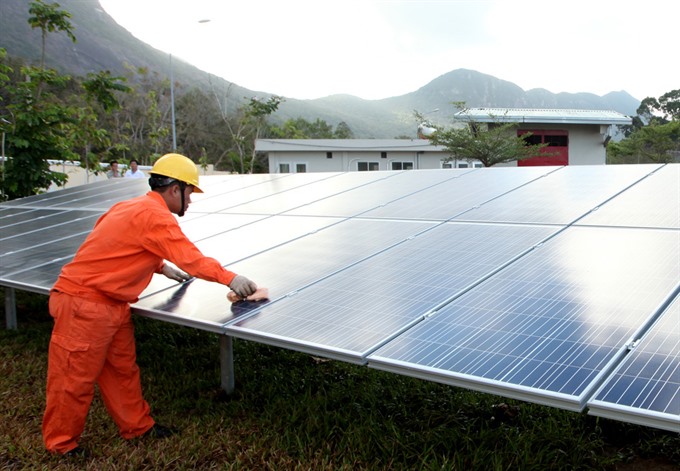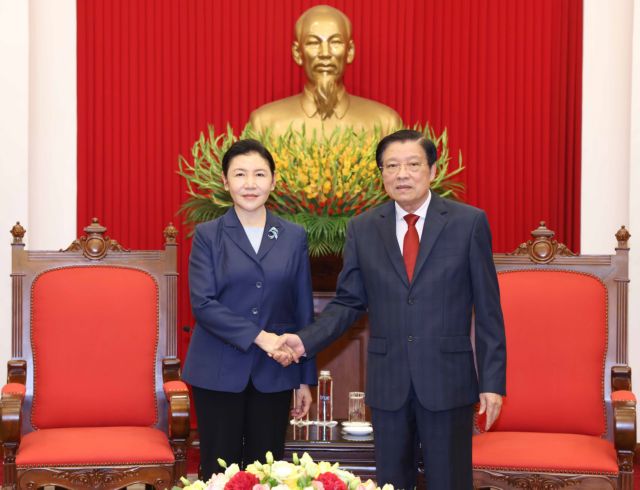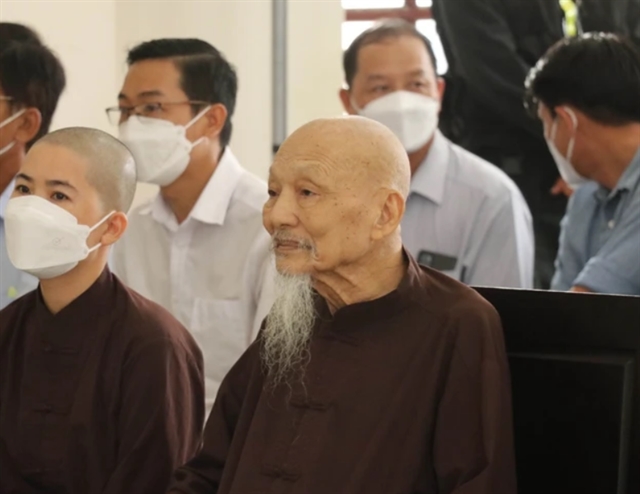 Environment
Environment

Việt Nam has been making efforts to mobilise international and domestic sources in order to support national energy development and achieve a sustainable energy system with low emissions, experts have said.
 |
| A worker at Côn Đảo Solar Power Plant inspects solar panels. — VNA/VNS Photo Ngọc Hà |
HÀ NỘI — Việt Nam has been making efforts to mobilise international and domestic sources in order to support national energy development and achieve a sustainable energy system with low emissions, experts have said.
This includes ensuring a reliable power supply at an affordable price for the country’s continued socio-economic development, optimising the efficient use of energy sources and promoting the use of clean and renewable energy, they said.
Speaking at the conference on sustainable energy and a low emission economy in Việt Nam yesterday, Vice Minister of Industry and Trade Hoàng Quốc Vượng said that energy security has always been regarded as a top priority in policy and strategy development for Việt Nam’s energy sector.
The nation’s energy demands have increased at a remarkable rate over the last 15 years, with a commercial energy growth rate of about 9.5 per cent per year. Power consumption has been increasing at about 11 per cent per year between 2011-2016.
Việt Nam faces challenges with its increasing energy demands, which put pressure on energy security and the national economy. Thus, the country has switched from being an energy exporter to an energy importer, and plans to import 17 millions of tonnes of coal in 2020.
Vượng said the Government has put forward significant funds to set up, reform and complete mechanisms and policies in energy development to improve clean and renewable energy. It would gradually increase the ability to mobilise internal finance in enterprises operating in the power sector, attract more foreign direct investment for development of power projects, and develop a healthy and competitive market for enterprises.
Wolfgang Manig, Chargé d’Affaires of the Embassy of the Federal Republic of Germany in Việt Nam said that Germany is leading the way in decarbonising the economy, which is necessary in the face of climate change.
The country was willing to share experiences made in the energy transition process and support Việt Nam in increasing renewable energy and energy efficiency.
At the conference, experts suggested that Việt Nam needs to use energy sources efficiently and enhance the development of renewable energy sources, as well as an intelligent power grid and a high share of distributed power generation. This would help ensure a reliable power supply, successfully optimising the efficient use of energy resources, while also addressing climate needs for continued decarbonisation.
Waste to energy
Producing energy from waste is a practical solution to deal with solid waste, predicted to increase between 10 and 16 per cent annually, in big Vietnamese cities, experts have said.
Ingmar Stelter, director of the Energy Support Programme implemented by the Ministry of Industry and Trade and the German Organisation of International Cooperation, said converting waste into energy has proven to be a practical solution worldwide to cope with environmental and land use challenges in metropolitan areas.
In Việt Nam, some 35,000 tonnes of solid waste from urban areas and 34,000 tonnes of rural solid waste have been released in recent decades. However, some 85 per cent of solid waste was treated through landfills, which required a lot of land and posed risks of environmental pollution.
It was time Việt Nam transformed solid waste into energy, he said. There were opinions that producing power from waste was much more costly than from hydro-power or coal, but other benefits, such as no more waste to be buried on land or eco-friendly technology, should be taken into consideration.
He said he hoped the country could apply a more effective and sustainable approach for solid waste in the coming decades to help reduce environmental pollution, enable more efficient land use and utilise the energy market in the country.
Phạm Trọng Thực, head of the Ministry of Industry and Trade’s Renewable and Recycled Energy Department, said the country has not taken advantage of waste to energy production.
The challenge was the shortage of a sustainable source of waste. In fact, many investors still found it difficult to approach the source of waste, which was the key issue, to invest in the field of waste.
Thực said converting waste into energy was a good choice for Việt Nam to ensure energy security, social welfare and environmental protection, he added.
In Germany, all kinds of waste are utilised. For example, one tonne of waste in Germany could be sold at a price of 40 euros, but in Việt Nam, the Government had to pay several tens of dollars to bury waste.
Việt Nam’s Government has made efforts to increase electricity generation to ensure sustainable and green economic development and energy security. According to the Renewable Energy Development Strategy, which was enacted in late 2015, the utilisation rate of solid waste in urban areas for energy purposes is expected to increase from the current level to 30 per cent in 2020 and 70 per cent in 2030. — VNS









